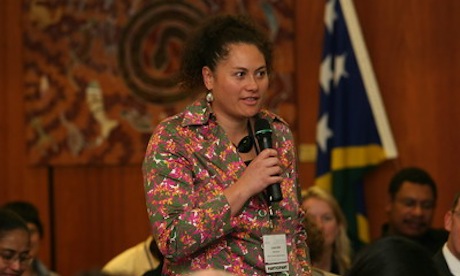A website launched on Monday to oppose the Marriage (Definition of Marriage) Amendment Bill has been taken down after what has been described as one of the “largest unprecedented” denial of service attacks on a website in New Zealand.
Family First, which launched the Protect Marriage website, says after being alerted by media that the website was down, it was informed by its webhost company that the domain was experiencing a large scale denial of service attack.
A denial-of-service attack is an attempt to make a network resource unavailable to its intended users. The means used to carry out DoS attack may vary, but they generally consist of the efforts of one or more people to temporarily or indefinitely interrupt or suspend services of a host connected to the Internet.
The company hosting the Protect Marriage website tried blocking the IP addresses associated with the attack but by late afternoon a notice was posted on the website saying “Due to large scale Denial of Service attacks against this domain it has been decided to ensure the stability and security of our servers and network so this account has been removed.”
Protectmarriage.org.nz offered resources and information about marriage. Visitors to the site were invited to sign a petition if they “support the definition of marriage being maintained as one man one woman” and oppose any attempt to redefine this.
Before it crashed bogus names had been added to the online petition gathering support for opposition to the Definition of Marriage Bill. Among the names listed were rappers Marshall Mathers (Eminem) and Curtis Jackson (50 Cent), Tobias Fünke (a sexually-confused character from TV show Arrested Development), “Nosy, Homophobic People Intruding on others lives”, and Micky and Minnie Mouse.
The band Train was yesterday informed via Twitter that the video for their song Marry Me had been used on protectmarriage.org.nz and responded by saying “Didn’t know. Getting it off asap. Thx 4 tip.”
Bishop Patrick Dunn of Auckland has appealed “to our lawmakers to keep marriage as defined as between a man and a woman particularly in light of the fact that other legal avenues exist for same sex couples to publicly cement their lifelong commitment to each other.”
He said the Catholic Church affirms love, fidelity and commitment in all relationships, but believes that marriage should be defined as being between a man and a woman.
“To propose any alternative definition would have implications in law, and in society, but also for education and the family structure which throughout history has been seen as the fundamental unit in every society.”
The Definition of Marriage Bill, a private member’s bill proposed by Labour MP Louisa Wall, was selected by ballot last week. It will be debated by parliament in August.
Wall says many members of the gay community simply want the same rights and access to marriage that any other New Zealander has.
“I think this is a generational issue, to be honest,” Wall says, “because 63% of New Zealanders support same-sex marriage but in the 18-to-24-year-old age group nearly 80% support it – so this is a bit of a challenge for those not Generation X-Y.”
She says her bill modernises the concept of marriage, and if it is passed, same-sex married couples will also be legally able to adopt children.
At present, marriage is not defined in the Marriage Act, and Ms Wall’s bill would make it clear that marriage is a union of two people, “regardless of their sex, sexual orientation or gender identity”.
The bill would be decided by a conscience vote instead of along party lines.
According to a survey by TV ONE’s Close Up, the bill has the definite support of 42 MPs, and needs 61 votes to pass.
Prime Minister John Key earlier signalled his support for the bill in its early stages, but he has moved on to say said he was unlikely to change his mind over the course of the debate to allow same-sex couples to marry – given it was a conscience vote.
“There will be plenty of people in our caucus who will be deeply opposed – particularly the very religious ones, and I can understand that,” he said.
“I think it’s quite healthy that New Zealand has the debate, I suspect it won’t be what it was when you looked at homosexual law reform in the’70s – I don’t think it will be that dramatic.”
Mr Key said the bill was likely to reach select committee stage and he thought there would be a lot of lobbying from those opposed and those in support of the bill.
Source
- Catholic opposing gay marriage bill -TV3 Fr Duffy
- Gay guys not interested in marriage
- Colin Craig: 'Gay parents not good role models'
- Gay marriage opponents gear up to fight Wall's bill
- Key will back early stages of gay marriage bill
- Harawira supports Wall's Blll
- LegaliseLove Challenges Ideology Of Marriage Website
News category: New Zealand.




